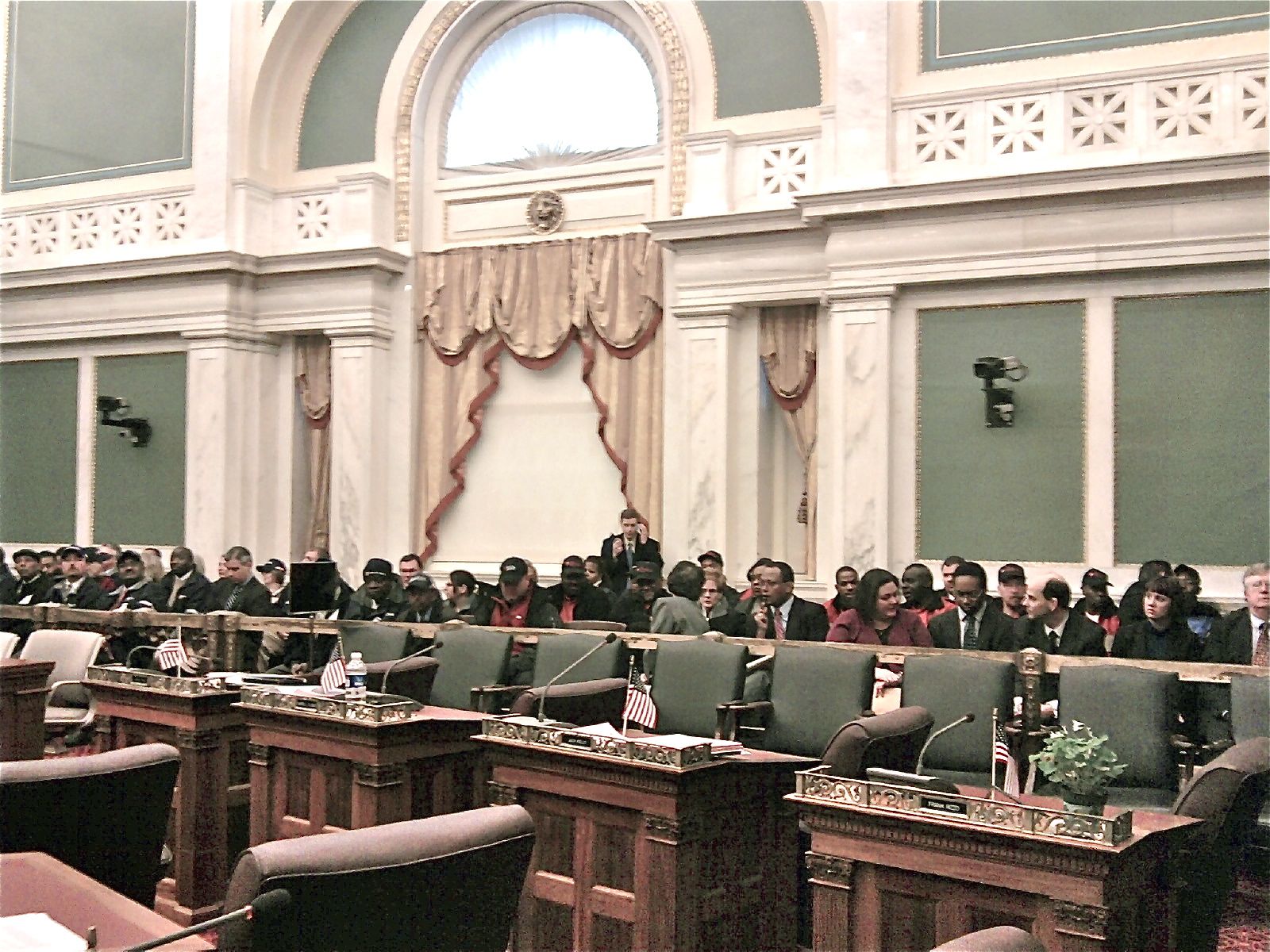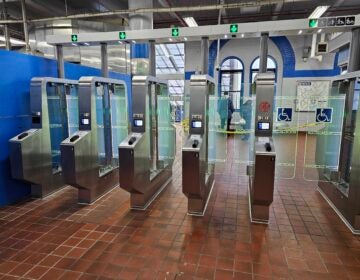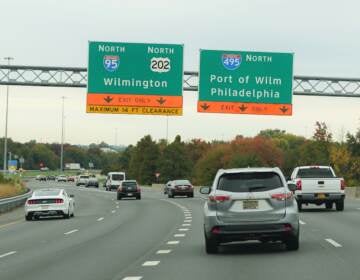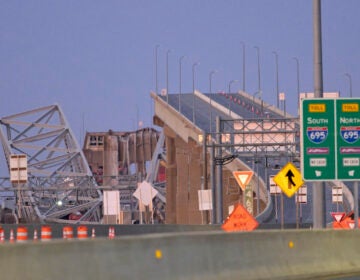Rules Committee ponders bills to lower parking taxes, decrease chances of valet services parking cars illegally

City Council’s Rules Committee Wednesday passed legislation aimed at preventing valet parking customers from getting tickets because their cars were left in illegal spots.
The committee also forwarded to full council a bill that would charge more for valet zone permits and renewals.
A third parking bill, introduced, just like the other two, by Councilman-at-large James Kenney, would theoretically reduce the cost of parking in Philadelphia by reducing the parking tax that patrons pay and garage and lot owners remit to the city from 20 percent to 15 percent over the next five years.
That one drew about 200 parking industry employees to Council chambers, but was held in rules committee, Kenney said, so more discussion can take place with the administration, in the context of the city’s budget.
The bill that hasn’t moved yet got the most attention at the hearing.
Philadelphia’s 20 percent parking tax is higher than New York’s, facility owner Robert Zuritsky, who leads the Philadelphia Parking Association, told the Rules Committee during a hearing on several parking-related bills. Reducing it would allow garages to charge less and hire more employees, he said.
“Don’t Tax Our Jobs Away,” read placards held by some employees in attendance.
But Revenue Commissioner Keith Richardson, of the city’s Department of Revenue, said the city cannot afford to cut back the tax rate. “Over the course of the city’s five-year Plan, the general fund would lose an anticipated $58.5 million in revenue based on the reductions,” Richardson said. “The city is not in a position to absorb such a significant loss of revenue” so the administration does not support the proposal.
Zuritsky argued that the city could cut taxes and create more revenue by hiring auditors to go after “rogue parking locations” that “run their parking lots and garages without being registered with the city. That means not only do they not pay the 20 percent parking tax (but) there is no way to know whether they are paying for insurance, use and occupancy taxes, business privilege, or any other tax or city fees.”
Zuritsky gave the committee two huge binders which he said contained a list of a location of 100 rogue parking locations. The association has been working with the city to crack down on these entities, and the revenue department has already recaptured $1.8 million as a result of earlier efforts, he said.
Clyde Wilson, the president of The Parking Network – a forensic auditing firm that works with other cities to find parking operators who are shirking their tax burdens – flew in from Texas to testify. He said that in the five years his firm has been working for the City of Miami, they have recovered $35 million.
Jane Lipton, executive director of the Manayunk Development Corporation, said her non-profit operates parking lots for those who shop or eat in the neighborhood, many of whom are coming from suburban areas where they do not have to pay such a high parking tax. A tax reduction would mean her organization could either charge less to customers, which she believes would make coming to the area more attractive, or could use the savings to provide other lots, increasing parking availability and also making travel to the area more attractive, she said.
“I am committed to getting the parking tax back down to a fair level,” Kenney said at the beginning of the hearing.
Bill 100611, which aims to keep people who use valets to park from getting tickets does so by requiring valets to present customers with a receipt from the licensed, off-street parking facility where their car was parked.
First District Councilman Frank DiCicco said he has heard of many instances in which people have paid $15 or $20 for their cars to be parked by a valet, only to receive by mail weeks later a notice of a fine for parking illegally – at a fire hydrant, for example – plus a late fee to boot.
“I know many restaurateurs who have showed me stacks of tickets they paid for” to try to keep a customer who got fined for an illegal valet park job.
The same bill also requires that all parking purveyors accept credit cards and debit cards with no additional charge to the customer.
Bill No. 100610 changes the annual permit/renewal fee for valet parking zones – the place one pulls over to allow the valet to park – to $2,750 for each twenty feet of curb space in certain parts of the city – Center City, University City, and the Delaware Avenue Entertainment District. Previously, valet services were charged a $250 permit fee for every 20 feet of curb space they used and an additional $250 for each parking meter that was removed. In all other parts of the city, the bill proposes the annual permit/renewal fee to be $775 for each twenty feet of curb space used for the valet zone.
Contact the reporter at kgates@planphilly.com
WHYY is your source for fact-based, in-depth journalism and information. As a nonprofit organization, we rely on financial support from readers like you. Please give today.






